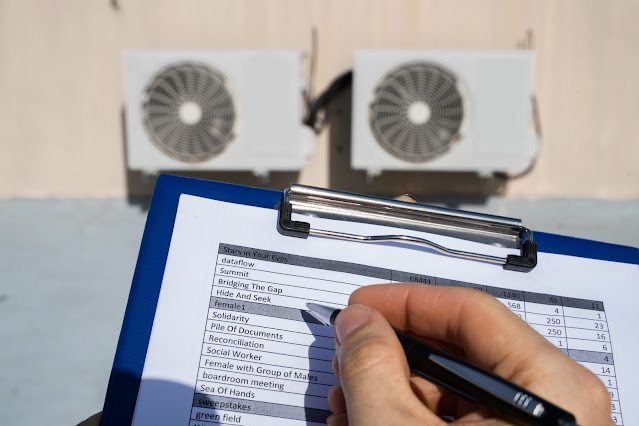HVAC Training: A Gateway to a Rewarding Career
The Importance of HVAC Training
HVAC, or Heating, Ventilation, and Air Conditioning, is a crucial field that ensures our indoor environments remain comfortable and safe. Whether it's in our homes, offices, or industrial spaces, the role of HVAC professionals is indispensable. To delve into this dynamic field, one must undergo comprehensive HVAC training.
Understanding the Basics
The foundation of any successful HVAC career lies in understanding the basics. From grasping the principles of heating and cooling systems to learning about ventilation techniques, a solid understanding of the fundamentals is paramount.
Safety First: HVAC Training and Regulations
Prioritizing safety is paramount in the HVAC industry. A good HVAC training program emphasizes safety regulations and protocols, preparing individuals to work in environments that demand precision and adherence to safety standards.
Advanced Techniques in HVAC Training
As technology advances, so does the HVAC industry. A quality training program should cover advanced techniques, including the latest in HVAC technology, energy-efficient practices, and sustainable solutions.
Choosing the Right HVAC Training Program
Accreditation and Certification
When venturing into HVAC training, it's essential to choose a program that is accredited and recognized by industry authorities. Certification adds credibility to your skillset, making you a sought-after professional in the job market.
Hands-on Training vs. Online Courses
The age-old debate: hands-on training or online courses? The answer lies in your learning style and preferences. Hands-on training provides practical experience, while online courses offer flexibility. Finding the right balance is key.
Industry-Relevant Curriculum
An effective HVAC training program should have a curriculum aligned with industry needs. From understanding the latest HVAC technologies to troubleshooting real-world issues, a relevant curriculum sets the foundation for a successful career.
Career Opportunities After HVAC Training
Job Market Insights
With HVAC systems becoming more sophisticated, the demand for skilled professionals is on the rise. Exploring job market insights helps individuals identify the specific skills and certifications that make them stand out to potential employers.
Specializations in HVAC
HVAC is a broad field with various specializations. Whether it's residential, commercial, or industrial HVAC, choosing a specialization allows individuals to tailor their skills to specific industry needs.
Advancement Opportunities
HVAC training is not a dead-end but a stepping stone to advancement. From becoming a lead technician to venturing into HVAC system design, the opportunities for growth are vast.
Tips for Success in HVAC Training
Time Management and Commitment
HVAC training requires dedication. Effective time management and a commitment to learning are crucial for success. Balancing practical training, theoretical knowledge, and hands-on experience ensures a well-rounded skill set.
Building a Strong Network
Networking is invaluable in any industry. Connecting with fellow HVAC trainees, professionals, and instructors creates a support system and opens doors to opportunities, advice, and collaborations.
Staying Updated with Industry Trends
The HVAC industry evolves, and staying current with trends and advancements is vital. Subscribing to industry publications, attending conferences, and participating in continuous education programs keep professionals at the forefront of the field.
Conclusion
In conclusion, HVAC training is not just about learning the technicalities; it's about preparing for a dynamic and rewarding career. Choosing the right training program, staying committed, and continuously evolving with industry trends are the keys to success in the HVAC field.
FAQs
Q1: How long does HVAC training typically take?
A1: The duration of HVAC training can vary, but many programs range from six months to two years.
Q2: Are online HVAC courses as effective as hands-on training?
A2: Both online and hands-on training have their advantages. It varies based on individual preferences and learning styles.
Q3: What certifications should I pursue after completing HVAC training?
A3: Popular certifications include NATE, EPA 608, and HVAC Excellence certifications.
Q4: Are there specific specializations in the HVAC field?
A4: Yes, HVAC offers specializations like residential, commercial, and industrial HVAC, each with unique challenges and opportunities.
Q5: How can I stay updated with the latest trends in the HVAC industry?
A5: Subscribing to industry publications, attending conferences, and participating in continuous education programs are effective ways to stay informed.






